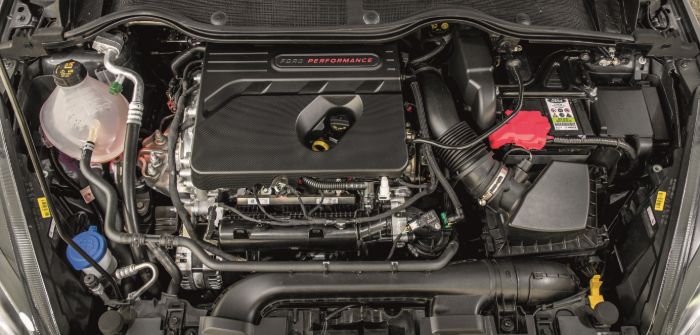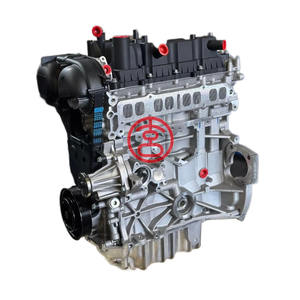The Future of Engines: Developments Driving Lasting Power Solutions
As the automobile sector navigates the important transition in the direction of sustainability, the future of engines is significantly specified by groundbreaking technologies. Electric engine improvements, along with promising advancements in hydrogen fuel cells and biofuels, are reshaping the landscape of power services. The introduction of hybrid systems even more complicates this advancement, presenting both chances and difficulties to lower exhausts effectively. Coupled with the assimilation of expert system in engine layout, these technical strides raise essential concerns about their lasting viability and effect on typical paradigms. What might this suggest for the market and customers alike?
Electric Engine Dope
The advancement of electric engine growths represents a critical change in the automobile and aerospace markets, driven by the urgent need for sustainable choices to fossil gas. This transition is identified by considerable innovations in battery technology, power electronics, and electric motor layout, which collectively improve the effectiveness and efficiency of electric engines.
Recent technologies have brought about the production of lighter, a lot more energy-dense batteries, such as lithium-silicon and solid-state batteries, which guarantee longer varieties and shorter billing times. Furthermore, improvements in electric motor performance, such as making use of irreversible magnets and progressed cooling down systems, make it possible for electrical engines to operate properly under varying problems. These improvements not only improve vehicle performance yet likewise contribute to a reduction in total energy usage.
Moreover, the assimilation of sophisticated software algorithms has actually optimized power monitoring in electrical automobiles, permitting regenerative stopping and anticipating charging techniques. As manufacturers increasingly accept electrical propulsion, the automobile and aerospace markets are observing a paradigm shift towards greener modern technologies. This evolution not only fulfills regulatory needs yet additionally straightens with customer preferences for eco-friendly transportation remedies, solidifying electrical engines as a keystone of future lasting wheelchair.
Innovations in Biofuels
As the automobile and aerospace industries increasingly focus on lasting energy resources, innovations in biofuels emerge as a complementary service to electrical engines. Biofuels, originated from natural materials such as plants, waste, and algae, present an ingenious avenue for decreasing greenhouse gas discharges and reliance on nonrenewable fuel sources.
Recent study has actually concentrated on enhancing the efficiency and sustainability of biofuel manufacturing. Second-generation biofuels make use of non-food feedstocks, decreasing competition with food supply and lowering ecological influence. Additionally, developments in synthetic biology have actually enabled the engineering of microorganisms to generate biofuels a lot more successfully, causing greater yields and lower production expenses.
In addition, the growth of drop-in biofuels enables smooth combination into existing framework, enabling a smoother shift for industries generally depending on fossil gas. ford fiesta engine. These gas can be used in present engines without alterations, promoting their adoption across various fields
Investments in biofuel technology, in addition to helpful policies, are necessary to drive innovation and scalability. As the global area seeks to battle climate modification, biofuels supply a practical, instant remedy that straightens with the overarching objective of sustainability in transportation and aviation.
Hydrogen Gas Cell Modern Technology
An expanding variety of companies and scientists are discovering hydrogen fuel cell technology as a practical choice to traditional power resources in transportation and power systems. This technology transforms chemical power from hydrogen right into electricity with an electrochemical response, with water as the only by-product, making it an eco friendly alternative.
The core of hydrogen fuel cells is the gas cell stack, where hydrogen particles are split right into protons and electrons. The flow of electrons generates electrical power, while protons move through a membrane to integrate with oxygen from the air, creating water. This process results in high effectiveness and low discharges, positioning hydrogen gas cells as an essential gamer in the change to sustainable power.
Considerable advancements have actually been made in improving the resilience and performance of fuel cells, alongside lowering prices with cutting-edge manufacturing strategies. The development of hydrogen production methods, such as electrolysis powered by sustainable power sources, improves the sustainability of the overall system. As infrastructure for hydrogen refueling expands and manufacturing methods become more efficient, hydrogen fuel cell modern technology holds terrific promise for decarbonizing various this article fields, consisting of sturdy transportation and fixed power generation.
Hybrid Solutions and Their Impact
Crossbreed systems represent a significant evolution in lasting engine innovation, merging standard interior combustion engines with electrical propulsion to enhance power effectiveness and reduce exhausts (ford fiesta engine). This twin approach allows automobiles to make use of both power resources, allowing better adaptability in energy intake and reducing reliance on fossil fuels

In enhancement to ecological advantages, hybrid systems supply customers a viable change in the direction of fully electrical vehicles. They ease range stress and anxiety by integrating the ease of gasoline with the benefits of electrical propulsion, making them an appealing alternative for a wider audience.
The Duty of AI in Engine Style
Leveraging innovative algorithms and artificial intelligence techniques, the vehicle sector is progressively integrating expert system (AI) into engine layout procedures. AI enhances the performance and effectiveness of style by assessing large datasets to determine optimal arrangements and performance specifications. This capability enables engineers to simulate numerous operating conditions and forecast engine actions under several scenarios, Visit Your URL substantially minimizing the moment and cost connected with standard prototyping approaches.
Furthermore, AI assists in the development of advanced products and combustion procedures customized for sustainability. By maximizing gas efficiency and decreasing emissions, AI-driven layouts align with global campaigns aimed at lowering the carbon footprint of vehicle engines. Device understanding formulas can also predict maintenance demands, resulting in enhanced integrity and longevity of engine parts.
Additionally, AI contributes in the assimilation of electrification innovations, such as hybrid systems, where it can enhance battery administration and power healing procedures. As the industry relocates in the direction of even more lasting power remedies, the duty of AI in engine design ends up being increasingly essential, driving technology and boosting the performance of future engines. Inevitably, the partnership between AI and engine style heralds a brand-new age of smarter, cleaner, and much more efficient automobile innovations.

Final Thought
In final thought, the future of engines is being shaped by a convergence of ingenious modern technologies that focus on sustainability. Electric engine innovations, biofuel developments, hydrogen fuel cells, and crossbreed systems collectively contribute to a considerable decrease in exhausts and environmental influence.
Electric engine developments, together with encouraging advancements in hydrogen fuel cells and biofuels, are improving the landscape of anonymous power services. Additionally, improvements in electric motor performance, such as the use of permanent magnets and advanced cooling down systems, make it possible for electric engines to operate properly under differing conditions. By enhancing fuel efficiency and minimizing exhausts, AI-driven layouts line up with worldwide initiatives aimed at decreasing the carbon footprint of auto engines. As the market relocates in the direction of more lasting power solutions, the duty of AI in engine layout ends up being progressively essential, driving advancement and improving the performance of future engines. Electric engine advancements, biofuel advancements, hydrogen fuel cells, and crossbreed systems jointly add to a substantial decrease in discharges and ecological effect.